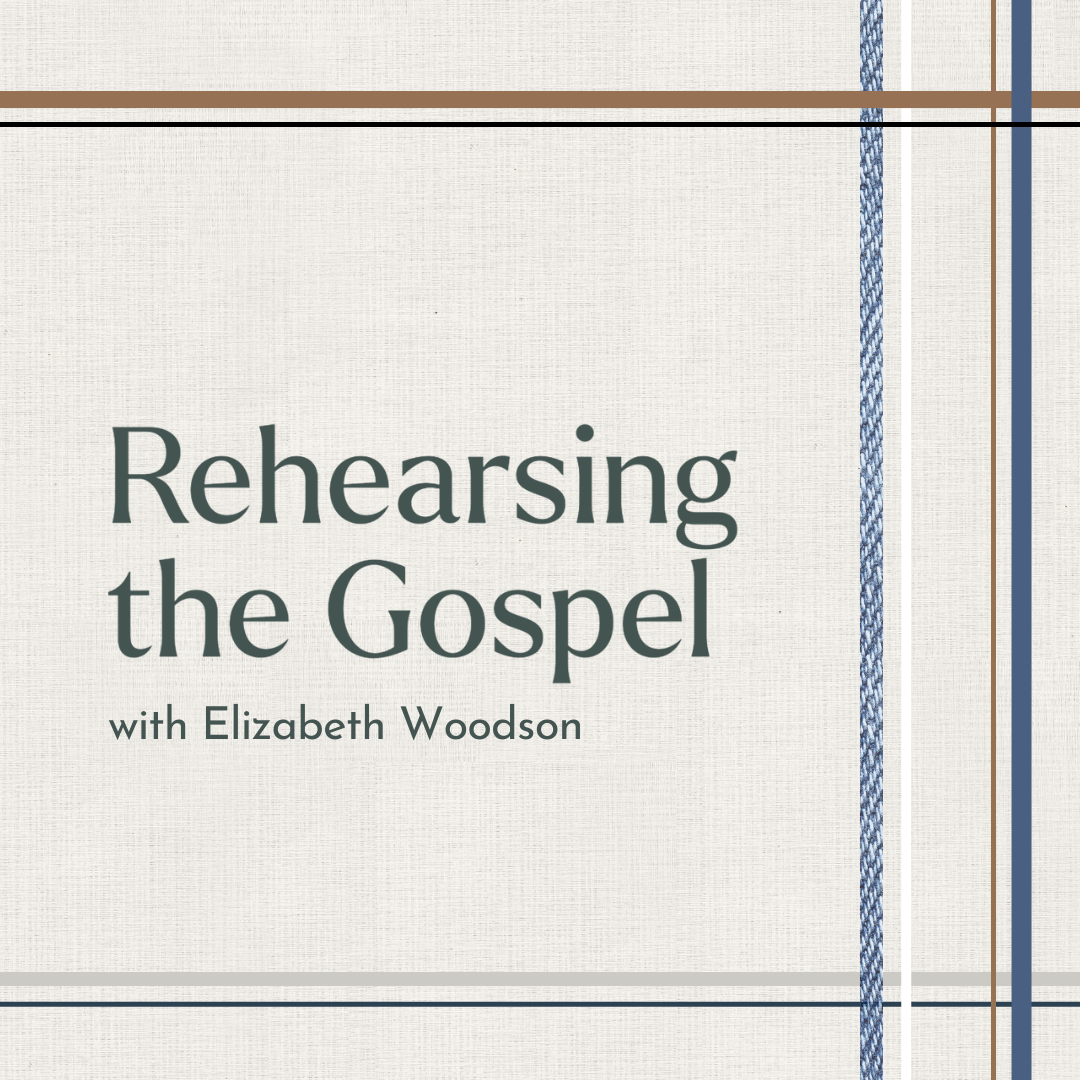Scripture Memory and Meditation with Glenna Marshall
In this episode, Hunter chats with Glenna Marshall about the practice of Scripture memory and meditation. This is a topic they are both deeply passionate about, which makes it such a fun episode to listen to! They chat about the “why” of Scripture memory as well as some very practical “how”s for burying Scripture in your mind. We pray that as you listen, you will be encouraged to hide God’s Word in your heart!
INTERVIEW QUESTIONS
How has God used Scripture memory and meditation in your own life?
Why is Scripture memorization and meditation so important?
If we’re not memorizing Scripture, what are we missing out on?
How are Scripture memorization and meditation related? And how do they fuel your prayers?
How can we go about doing it? What are some methods that have worked for you? What hasn’t worked?
What’s the value of memorizing contextually?
What’s the value of memorizing in community? What are some things you’ve seen work for friend groups, small groups, or Bible studies who want to begin memorizing together?
What’s the first step for the woman who feels totally overwhelmed?
Who has had the greatest impact on your Scripture memory journey?
NOTES & QUOTES
“[As I worked to memorize Scripture] I saw the sin of anger slowly shrink in my life, and I thought, “It's not like this is a magical process. What this is is God using his Word to correct me, to shape my heart, and to change the way that I think and the way that I respond. It was truly transforming.”
“This is God's Word. These are not my words or someone else's words. These are God's holy and inspired and inerrant words.”
“God has designed your brain to remember.”
“There are a lot of different ways to memorize Scripture. You should try all different kinds of ways, and then you should see what works for you and just employ it. Just do it every single day. Just do it because you can do this, and you'll be surprised.”
“God in giving the law tells his people (this is my paraphrase), I want you to keep my word in your mouth and before your eyes and in your heart. And I want you to speak it to your children and I want you to think about it and talk about it when you wake up in the morning, when you walk by the way, when you go to bed at night. And the reason is to remember who God is and to remember what He has done for them.”
“One of the reasons we even have Scripture is to remember so that you can have hope (Romans 15:4). That is so key. That is why we study the Word; it's why we think about it, it's why we spend time rehearsing phrases over and over again. Because what we're doing is we're pushing back against the message of the world, the pull of the culture, the pull of worldliness. We are pushing back and remembering this is who God is, this is what he's done in sending Jesus to save us, this is who we are now in Christ, and so therefore this is how we live. It is just too easy to forget, and God knows that about us, and so he has given us minds that can hold his Word and the Word to store in our minds. And when we do that it reminds us who he is and who we are. That is what we need to endure in this life.”
Insight #1—Lauren Bowerman:
“Romans 15:4, which Glenna referenced, says, “For whatever was written in former days was written for our instruction, that through endurance and through the encouragement of the Scriptures we might have hope.”
As believers we are called to remember. All throughout Scripture God calls his people to remember. God called the Israelites over and over again throughout the Old Testament to remember how he had saved them, to remember his name, to remember his character (Duet. 9, Ex. 13). In his songs the Psalmist recalls Israel’s faithlessness while urging them to remember God’s covenant faithfulness (Ps. 106). And believers today are called to remember—and to remind one another to remember—Christ’s ultimate act of faithfulness to us, his life of obedience, his sacrificial death on the cross, and his glorious resurrection.
Remembering this is what helps us to endure in this life. Sister, if you feel like you are limping through this life, if you feel weary and dragged down by discouragement, perhaps ask yourself, “Are you remembering? Are you remembering what is true? Are you remembering who God is and what he has done in Christ?”
God has told his story of faithfulness and goodness throughout time and through the work of his Son; it is laid out for us in Scripture! We need not look anywhere else than his Word to remind ourselves of who he is. We can open the pages of the Bible to remind ourselves of what is true—and we can invest time and energy into burying these truths deep in our minds through the practice of meditation and memorization.
So may you be quick to remember God’s goodness and faithfulness. Together may we seek to remember – and call one another to remember – Christ’s proved faithfulness through his ultimate act of love and kindness to us. And may our knowing of who God is propel us to trust him deeply through every season of life.”
“I want God's Word to be the primary influence on my life, because then that is what will come out of me and influence those who are around me. I have nothing better to give you than God's Word. I have no wisdom on my own. I have no intelligence. Everything I have is from him, through him, to him, and for him.”
“The more closely I live to God's Word, the farther I live from my sin. And that is a promise we see in Psalm 1. If you want to avoid sin and those who are living their life entrenched in sin, you delight in God's Word, meditating on it day and night.”
“No matter what method you choose, you're going to have to begin by writing out or printing out the text because you're going to need to put it in a place where you see it regularly. Have a time of day where you are devoted to working on it. Very basically, you need to read the text out loud 10 times. You need to try to close your eyes and say it out loud 10 times. Do that until you have that phrase or that sentence. And then move on to the next one and add it to what you've already learned. Bringing other believers into your spiritual disciplines is always a helpful thing because sometimes it's for your own benefit and sometimes it's discipleship because we don't always know how to “do” spiritual disciplines unless someone models it for us. Bringing a younger believer or someone you are discipling into your memorization can be so helpful to set them up for life, showing them what it means to follow Jesus.”
Insight #2—Lauren Bowerman:
“If you’re like me, you might be listening to all of this conversation nodding along, being encouraged by Glenna and Hunter’s devotion to God’s Word, and realizing how great an impact Scripture memorization might make in your and your family’s lives.
But if you’re also like me, you might be wondering if it’s possible for you to do this? Maybe you’ve tried to memorize Scripture before and gotten stuck or frustrated. Maybe you struggle to even read God’s Word to begin with, much less memorize large sections of it.
If this is you, I want to both encourage and challenge you. When I find myself really struggling to medidate on or memorize God’s Word, I find that it often boils down to a root issue. My difficulty seems to come when I have lost sight of the “why” behind meditating on God’s Word. And the “why” is essential when we are attempting to develop any spiritual discipline or practice.
Our theology informs our doxology: What we believe about God impacts how we live, and particularly how and why we will invest in his Word. So, knowing what is true about his Word informs how we will live that out in an offering of worship to him.
Sometimes I simply have to ask myself the convicting question: “Do I consider God’s Word to be beautiful? To be my life? Do I delight in it? Do I treasure it?” If I’m slow to answer these questions with a resounding yes, I know that I need to be quick to usher myself to Scripture to remind myself of what is true.
If this is you, I’d urge you to open up your Bible to Psalm 119 and just start reading. See the psalmist’s love for God’s Word, and pray that the words would be true of you too. Remind yourself that God’s Word “is firmly fixed in the heavens (Psalm 119:89), that it is “a lamp to my feet and a light to my path” (Psalm 119:105). Pray that you would rejoice at God’s Word “like one who finds great spoil” (Psalm 119:162), and that his words would be sweet to your taste, sweeter than honey to your mouth (Psalm 119:103).
When disciplines like Scripture meditation and memory feel out of reach, dry, or dutiful, remind yourself of the worth of God’s Word. Remember what Isaiah says in 40:8: “The grass withers, the flower fades, but the word of our God will stand forever” (Isaiah 40:8). This Word is our very life. Let’s treasure it, and let’s allow our affection for it to prompt us to work diligently to bury it in our minds and hearts.”
“Anything that we do, we want to do to and through and for him and in his strength, not our own. Even when we sit down to read our Bible just to do some study or to work through a chapter, we're so dependent upon the Holy Spirit to illuminate the Word for us so that we can understand and then obey. I think the same principles apply to memorization.”
“What we're doing here is taking another avenue for spiritual growth, because our goal here is to saturate our minds with the Word so that we have the mind of Christ—so that we think like him, react like him, respond like him, make decisions like him, discern like him, speak like him. And so if you feel overwhelmed by this, take that to the Lord and ask the Holy Spirit to aid you to get started, to hide his Word in your heart. I honestly believe that is a prayer he loves to answer because he wants you to store up his Word in your heart.”
“You can do this because the Lord has given you a mind, he has given you the Holy Spirit, and he's given you the Word. Believe that.”
“God's Word lives in you. If you have hidden it in your heart, the Holy Spirit will aid you to remember it.”
RESOURCES
DISCUSSION QUESTIONS
How has God used Scripture memory and meditation in your life?
How does Scripture memorization and meditation fuel your prayers?
Is there a friend or fellow church member to whom you might reach out to begin memorizing Scripture together with?
Is there a passage of Scripture that has been particularly important to you? Consider memorizing that passage this week.
What might you do or implement based on this week’s episode?
EPISODES FROM THE BACK TO THE BASICS SERIES
ARTICLES FROM THE BACK TO THE BASICS SERIES
IMPORTANT NOTE
Journeywomen interviews are intended to serve as a springboard for continued study in the context of your local church. While we carefully select guests each week, interviews do not imply Journeywomen's endorsement of all writings and positions of the interviewee or any other resources mentioned.
Affiliate links used are used where appropriate. Thank you for supporting the products that support Journeywomen!

















